 One of the main benefits of building a website using the WordPress software is the ability to easily expand your WP website or blog’s functionality using plugins.
One of the main benefits of building a website using the WordPress software is the ability to easily expand your WP website or blog’s functionality using plugins.
What Are Plugins?
Like most people, you probably own a device like a smart phone. What do you do when you would like to access something new on your device like a new application, game or business tool?
You download and install an app!
An app is a little piece of software that is very simple and easy to install and immediately adds new features to a smart phone.
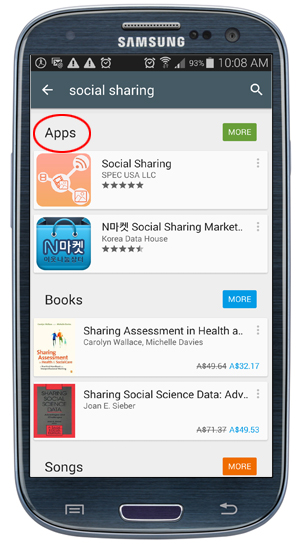
(Just as you will find social sharing apps …)
A plugin is very much like an app. You simply install and activate a software that provides new functionality to your WordPress website or blog …
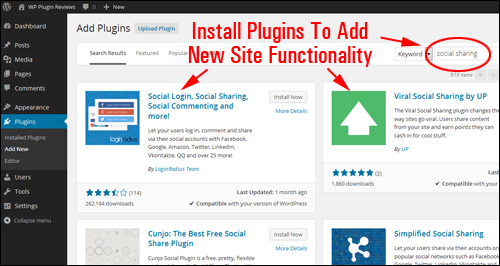
(… you can also find social sharing plugins for WordPress!)
Generally, if you plan to add new features to a site, additional cost is involved. Depending on the complexity of the new features or enhancements, this cost can be fairly significant, especially if it involves website development.
This also applies when creating a new website or business blog. Companies will often spend money for components they may not ever need.
To minimize your costs, we suggest a modular strategy when growing a web site and WordPress plugins are ideal for doing this.
Imagine being able to:
1) Start simply and with minimal expense involved. Get a web site up and running quickly, then …
2) As the need for new features and functionality becomes apparent, you can add new software modules with only a few clicks of the mouse that integrate with your current web site, giving your website or blog a completely new range of features and functionality, and …
3) Cost not one cent extra to add to your web site?
Well, this is precisely what a plugin lets you do!
WP Plugins – Benefits & Advantages
Earlier, we compared WP plugins with apps. In a similar way that many apps are free to download and some apps may cost a little money, the same is true with WordPress plugins.
In fact, many plugins are available at no cost to users.
Plugins that cost money are called ’Premium’ plugins. The good news, is that when you compare these to the price of hiring a professional web developer to get similar features and functionality on your site, most Premium plugins cost very little.
Also, since WordPress makes its code publicly available, any web developer can create, modify and customize any portion of the WP code. This has enabled thousands of professional web development companies to create more new applications that work seamlessly with WordPress than you can imagine.
- WP plugins allow you to get started with a simple website and add new features and enhancements to your site only if required.
- WordPress plugins allow you to add almost unlimited features to any website easily and cheaply.
- Plugins give you virtually unlimited expanding capabilities.
- WordPress plugins allow ”non-techies” to have a digital presence that they can manage themselves.
- Most plugins will typically work “right out of the box” and only require to be installed and activated to provide your web site with immediate capabilities, enhancements and functionality.
- Some plugins can be a little more advanced and may require some initial configuration.
WP Plugins – Powerful, Flexible … And (Many Are) Completely FREE!
Like themes, thousands of great WP plugins are available to WordPress users … often at $0 cost!
You can access thousands of plugins from the Free WP Plugin Directory …
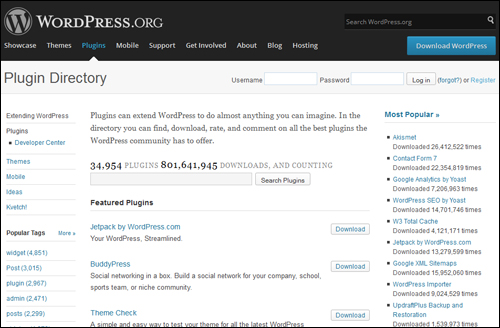
As previously mentioned, you can find WordPress plugins that can do just about everything you can imagine.
Plugin categories cover:
- Site Management
- Content Management
- Traffic
- User Engagement
- Social Sharing
- Adding Media – Videocasts, Graphics & Images, Audio, Multimedia, etc.
- e-Biz And Online Sales & Marketing Automation
- Improving Sales And Opt-In Conversions And Lead Generation
- Data Monitoring & Reporting Tools
- Securing Your
You can expand a WP site with plugins such as:
- Contact forms
- Polls and quizzes
- User Surveys
- Managing banners
- E-commerce (from managing single ordering with PayPal buttons, to enterprise scale e-commerce with shopping carts, invoicing, recurring payments, coupons, etc …)
- Social sharing buttons
- Private Membership sites
- List-building opt-in forms
- Sales funnels
- Mobile integration
- Improving your website’s Search Engine Optimization
- Image galleries (including rotating images, lightboxes, etc.)
- User testimonials
- Instant language translation (e.g. you can instantly change your site’s content from English to Spanish)
- Statistical reporting (e.g. number of visitors, pages visited, keywords searched, etc.)
- Custom navigation menus
- Customer interactivity – contest, live chat, currency conversion, etc.
- Offline storage integration
- Faster page loading
- Managing events & bookings
- Business directories
- Automatically sell spots on your blog
- Set client appointments and appointment reminders
- Set up reservations and bookings
- Detect broken hyperlinks and send you reports
- Redirect URLs
- Monitor social signals
- Make your pages printable or downloadable as a PDF file
- Add a site map
- Hide specific from showing on areas of your site (e.g. site maps, feeds, etc.)
- Protect page content sections
- Import content from other CMS applications
- Search and replace content
- Block SPAM
- Customize visitor commenting (e.g. display Facebook comments)
- Inserting HTML and code elements into your pages
- Add tables
- Add animated graphics and advanced content formatting options
- Add and manage QR codes
- Improve your local search listings on Google
- Add a map of your business location
- Post your posts automatically on social pages like Facebook, Twitter, YouTube, StumbleUpon and many others
- Display countdown timers (for special offers, coupons, etc …)
- Display custom greetings, timed offers, etc …
- And so much more!
As you can clearly see, plugins give you virtually endless business flexibility. If you are planning to build a website or blog for your business, or your existing site isn’t powered by WordPress, then consider choosing it in the future.
In case you’re still wondering about the power and flexibility of using plugins, let’s take a look at how you can benefit by installing an inexpensive plugin on your site.
For example, if you want content protection, you can use plugins to make an area of a page or post inaccessible, or create a professional membership site with personal login details for all users …
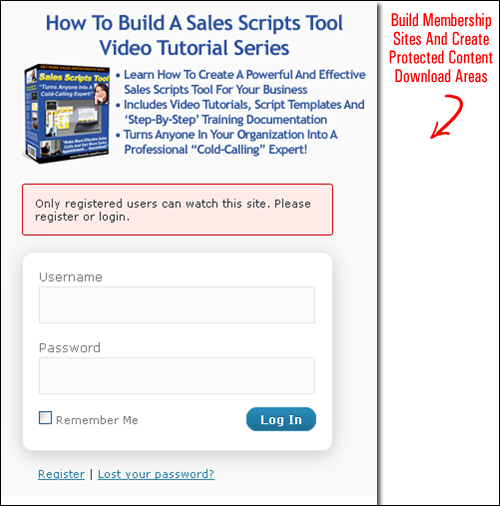
As mentioned previously, free plugins can be used to improve your website in lots of ways. From adding features that enhance your business, your web users’ experience and your understanding of what is happening on your site …
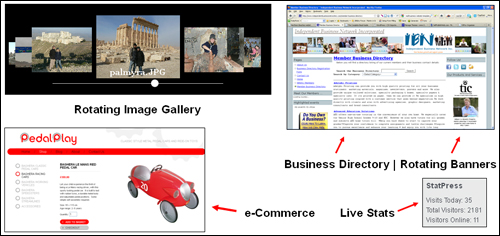
To increasing your site’s reach and visibility across a number of social networks and search engines …
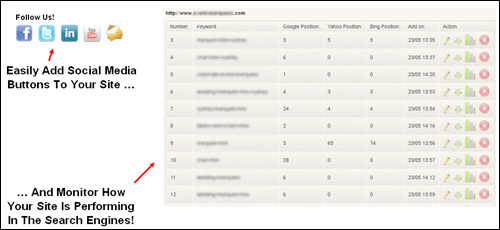
You can also add sophisticated functionality to your site using inexpensive paid WordPress plugins. For example, you can download plugins that integrate and automate processes on your website such as displaying customer testimonials and event bookings …
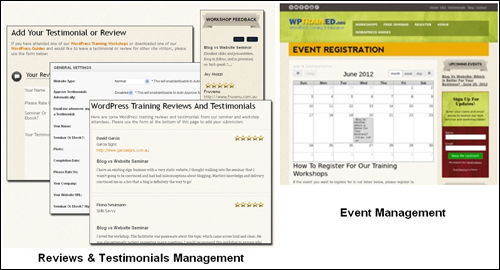
And also set up a custom-branded bookings and reservations system on your site … all for a small fraction of the cost of hiring web developers to build custom functionality for you …
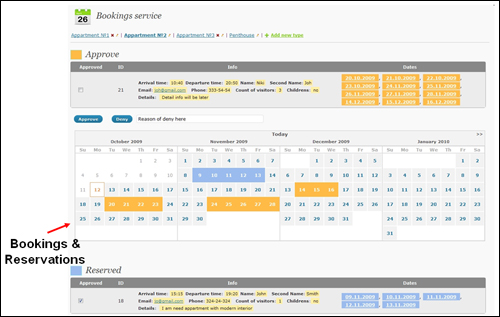
You can also take advantage of native WordPress commenting features and plugins that will make your site even more interactive …
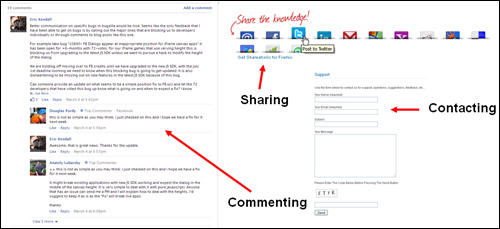
For example, your web visitors can:
- Post comments on your blog posts (which can grow into online discussions) using either the native WordPress commenting function, or integrated Facebook comments (which are then displayed throughout the visitors’ Facebook pages, giving your site additional exposure).
- Bookmark your content on bookmarking sites.
- Contact you using contact forms
- Engage in online discussions with your team members through forums or even set up an online social network on your domain.
- Engage with members of your team via live webcam conferencing and chatroom facilities
- Dial your business from their laptops when visiting your site
- Open a support ticket
- And so much more …
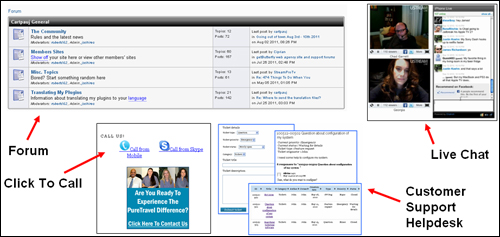
You can also integrate complex enterprise solutions with a WordPress “front end”. This lets you control the content that your visitors will see on your website, while the third-party application handles the technological functions …
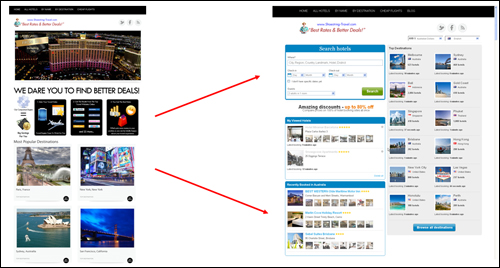
Plugins – Additional Tips
- There are many WordPress plugins to choose from. Be careful not to overload your server with too many plugins, as this can invariably affect your website’s performance and page loading times. It can also create more maintenance issues for you as a consequence of possible conflicts.
- Only keep those plugins you really need. Delete any plugins you don’t use from your site, as these also utilize resources.
- Many free plugins normally come with very little to no support from the plugin author. When considering paid plugins, we recommend that you check around a little and see what kind of reputation the developer has when it comes to providing support, updates, new features, etc. Be sure to check some of our plugin recommendations for more expert information.
- If you see that an unsupported plugin has not been updated for a while (e.g. two years), then think carefully before using it. The WordPress core software updates regularly and older plugins that have not been updated can cause conflicts.
- Ensure to always update your plugins. Outdated plugin not only can create conflicts, they may also have vulnerabilities that could be exploited by hackers and malware.
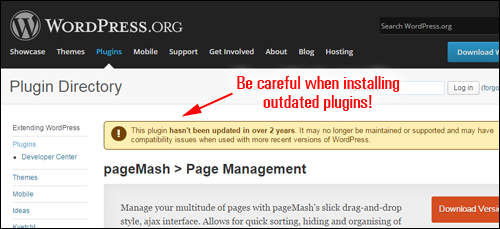
As you can see, plugins are an integral part of WordPress and contribute to making it the most powerful, flexible and scalable web publishing software available. Plugins also provide WordPress users with an easy, simple and inexpensive way to expand without spending thousands of dollars on outsourced web development costs.
One last thing regarding WordPress plugins:
Whatever functionality you need for your web site, you can guarantee that a someone has probably already created one that will do what you want, and that this plugin will either be available at no cost, or if it’s a paid plugin, that it will be fairly inexpensive.
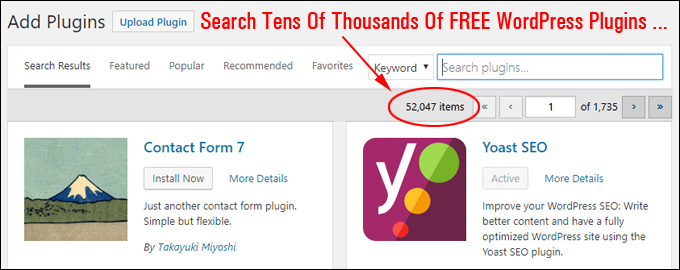
(Whatever you need done, there’s a WordPress plugin for that!)
And, if by any chance this plugin is not available, then one can probably be developed for you at a reasonable cost.
Hopefully, this article has given you a better understanding of plugins – what they are and how they can significantly to improve your website. See our published posts to learn about more great plugins that we recommend using.
***
"These tutorials have so much information and are easy to understand. If you use WordPress or plan to in the future these will help you with everything you need to know." - Valisa (Mesa, Arizona)
***

